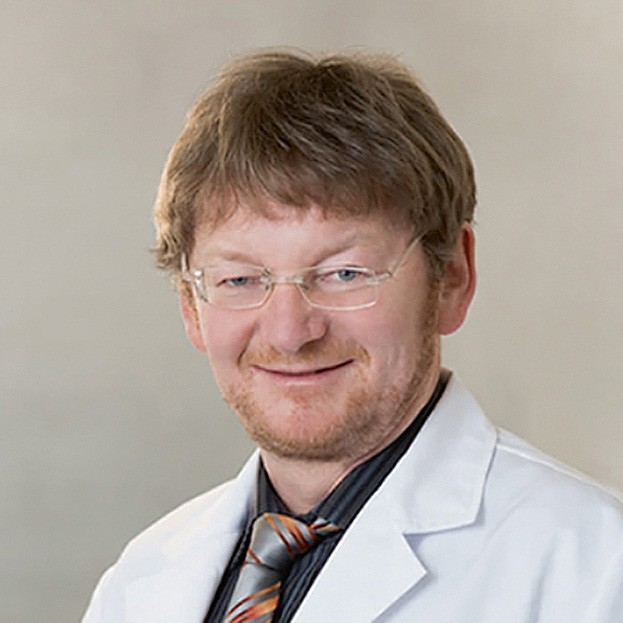Basic knowledge
Fibromyalgia and chronic fatigue syndrome (CFS/ME)

Both fibromyalgia and chronic fatigue syndrome have symptoms that include fatigue, exhaustion and muscle ache. However, whereas rheumatoid and inflammatory factors are not prominent in fibromyalgia, chronic fatigue syndrome is a systemic disease that often includes chronic inflammation and a long-lasting imbalance in the immune system.
Fibromyalgia
Fibromyalgia literally means ‘fibre-muscle pain’, and is characterized by persistent, deep muscle pain. The disease predominantly affects women, occurring on average at the age of 50 years. The actual cause has not yet been sufficiently researched and, as a consequence, optimal treatment therapies are rare in traditional medicine. Fibromyalgia is also known as ‘soft tissue rheumatism’, wherein the rheumatism and inflammatory factors are not elevated.
The symptoms of fibromyalgia are:
- Diffuse, deep and chronic muscle pain and associated painful pressure points, so-called ‘tender points’. These are usually at the transition from muscles to tendons, in which areas patients are particularly sensitive
- Fatigue, exhaustion, lack of energy
- Sleep disorders
- Depressive symptoms such as depression, nervousness, anxiety
- Irritable bowel syndrome
Our approach for fibromyalgia
With our diagnostic approach we identify the possible causes of fibromyalgia, including:
- Significantly increased oxidative stress, for example, due to lack of vital substances
- Disrupted energy-producing processes (mitochondriopathy), for example, due to toxin pollution, environmental toxins, medicines
- Chronic latent inflammatory processes, such as leaky gut, food intolerances, latent viral infections, dental disorders (jaw osteitis, CMD)
- Increased burden of emotional stress such as bullying, divorce, job loss
Our therapeutic approach for fibromyalgia
Our therapeutic approach to fibromyalgia is underpinned by the motto: ‘Relieve pain naturally’. The therapy is based on the triggering causes and is always a combination of various forms of therapy. We focus on relieving pain and increasing energy. The following therapies are used:
- Neural therapy as a pain therapy and interfering field search
- Procaine infusion for pain reduction and anti-inflammatory properties
- Micronutrient therapy: orally and via infusions (mitochondrial, build-up and energy infusions, etc.)
- Hyperthermia
- Nutritional therapy after testing
- Physical therapy
- Psychotherapy and relaxation techniques
Chronic fatigue syndrom (CFS)
Unlike fibromyalgia, chronic fatigue syndrome (CFS), also called myalgic encephalomyelitis (ME), is a systemic disease that often includes chronic inflammation and a long-lasting immune system imbalance. CFS often occurs before the age of 35, affects more women than men and is often not recognized early.
We speak of CFS when the following key criteria are met for more than six months:
- Newly-occurring tiredness (which has not existed previously)
- Persistent fatigue that is not the result of chronic overwork
- Fatigue that does not decrease significantly with bed rest
- Performance is significantly reduced
In addition, four or more symptoms from the following minor criteria must occur for at least six months:
- Sore throat
- Painful lymph nodes
- Muscle pain (myalgia)
- Joint pain (arthralgia)
- Memory/concentration problems
- Newly-occurring headaches
- Poor sleep
- Excessive exhaustion after exertion, with subsequent exhaustion lasting longer than 24 hours
Our approach for chronic fatigue syndrome (CFS)
Many diseases can cause severe fatigue. Therefore, we first exclude other diseases by means of exclusion diagnostics, including blood and stool examinations, thermography and Global Diagnostics.
Our therapeutic approach for chronic fatigue syndrome (CFS)
Based on test results, we determine the therapeutic approach as follows:
- In case of a chronic infection with persistent viruses like EBV, CMV, herpes viruses etc., we recommend a viral drainage
- We compensate for a deficit in the neurotransmitter and hormone system (serotonin, cortisol) by using natural identical substances
- We compensate for a deficit in micronutrients with infusion therapy and oral substitution
- In cases of intestinal dysbiosis, we recommend colon cleansing (colon hydrotherapy) and the development of the intestinal flora
We also support the healing process through:
- Psychotherapeutic treatment, such as lifestyle support and stress management strategies
- Nutritional advice and change of diet after testing
- Fitness training
In our therapeutic approach, it is important for us to communicate clearly to our patients: we achieve a long-term healing success if all levels – body, mind and soul – are included in the treatment plan.
Suitable therapies in the Alpstein Clinic

A Statement from
Dr. med. Ralf Oettmeier
Burning-out, exhaustion, chronic fatigue – we embark on a search for the physical and mental-emotional causes
